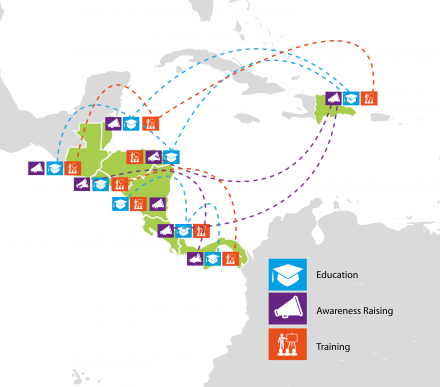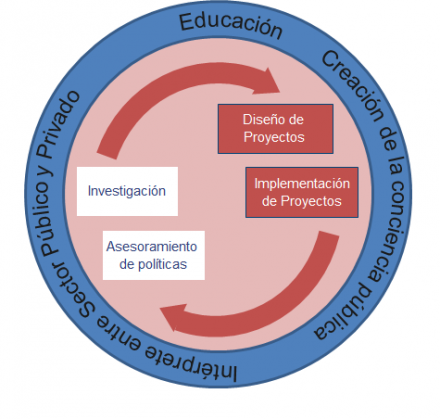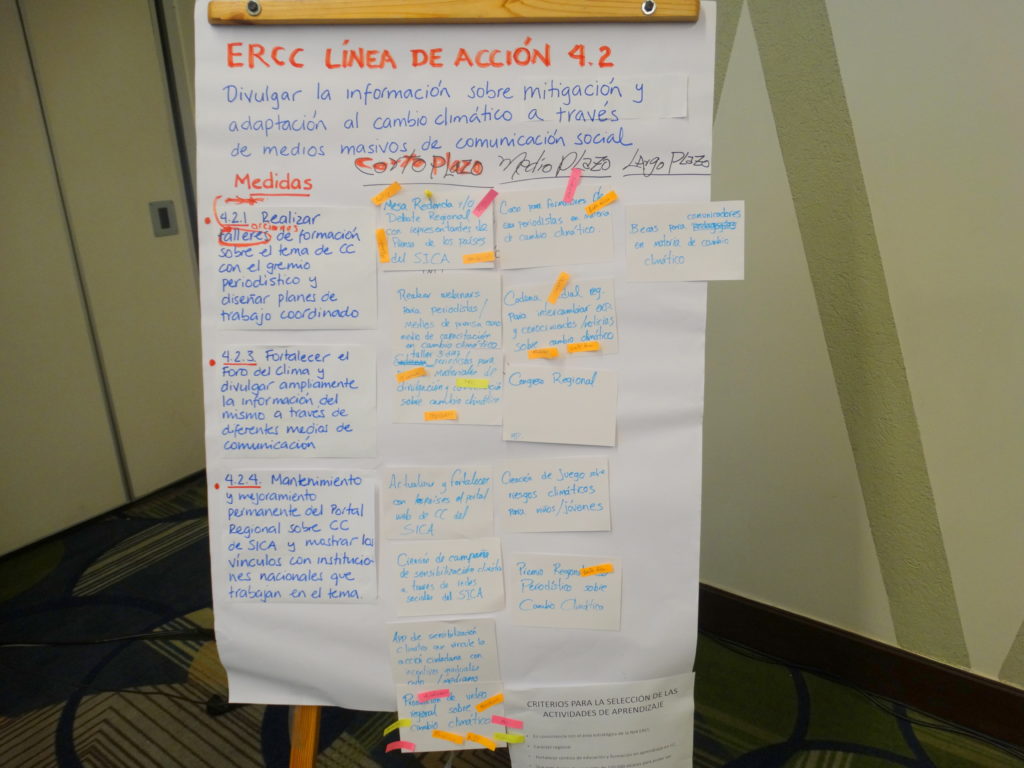With support of UN CC:Learn, the eight Member States of SICA (Central American Integration System) are working together to mobilize resources for the implementation of the Regional Action Plan on Climate Change Learning. In order to initiate the development of a joint funding proposal, the regional UN CC:Learn hub in the Dominican Republic organized a webinar on 2 March 2017. Representatives from 12 ministries of education and environment joined the discussion to explore different financing and resource mobilization mechanisms for climate change education and training. The event was organized in collaboration with the Frankfurt School – UNEP Collaborating Centre for Climate & Sustainable Energy Finance.

The webinar was part of the Regional Programme to Improve Education, Training and Awareness-Raising on Climate Change in the SICA Countries, which aims to increase climate change knowledge and skills throughout Central America in ways that promote improved personal and social resilience.
The session was kicked-off by Mr. Daniel Abreu, from the National Climate Change Council of the Dominican Republic, who highlighted “the experience of developing the National Climate Change Learning Strategy in the Dominican Republic during the pilot phase of UN CC:Learn was very positive”. Thus, SICA was encouraged to bring this experience at the regional level, for the benefit of all its member countries.
The Frankfurt School provided an overview to the principles of financing projects on climate change and education. The international framework and access mechanisms for climate financing were discussed. The school highlighted the importance of the project proposal preparatory phase as this will provide the gateway to investments among the global architecture of climate financing, including international funds, institutions, and contributing countries.

Participants confirmed the importance that climate change learning poses in their countries and shared some of the initiatives undertaken by the ministries of education and environment at the local level. They emphasized the need to address this matter jointly in order to strengthen their capacities as a region, but at the same time nationally. By the end of the session, country representatives reaffirmed their interest in tackling climate change learning challenges and their commitment to identify which would be the working areas for a regional project.
As a follow-up to the webinar, SICA representatives will continue collaborating on a joint project proposal during a face to face workshop to be held early April in the Dominican Republic.
Click here to learn more about the work carried out regionally and previous meeting.
About UN CC:Learn
UN CC:Learn is a partnership of more than 30 multilateral organizations supporting countries to design and implement systematic, recurrent and results-oriented climate change learning. At the global level, the partnership supports knowledge-sharing, promotes the development of common climate change learning materials, and coordinates learning interventions through a collaboration of UN agencies and other partners. At the national level, UN CC:Learn supports countries in developing and implementing national climate change learning strategies. Through its engagement at the national and global levels, UN CC:Learn contributes to the implementation of Article 6 of the UNFCCC on training, education and public awareness-raising, and the 2012-2020 Doha Work Programme. Funding for UN CC:Learn is provided by the Swiss Government and UN partners. The Secretariat for UN CC:Learn is hosted by the UN Institute for Training and Research (UNITAR).

